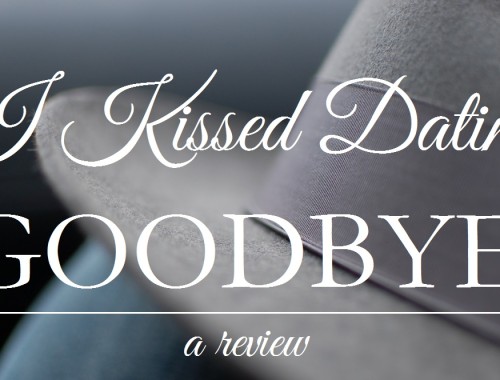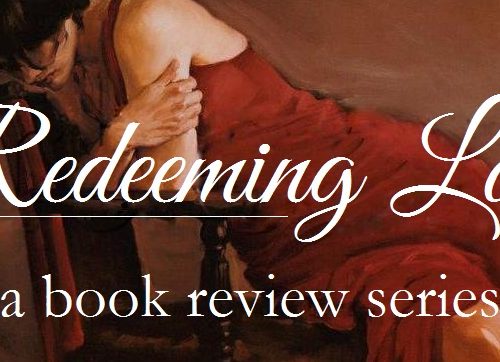
[art by Rebecca Guay]
I had just started my job as a bookseller at Barnes & Noble, and I could not have been more excited– it was the perfect job for me at the time. I got to be surrounded by books, helping people find books they’d love, and it was a part-time retail job that wasn’t a huge commitment, since I thought I’d probably be moving in a while.
I was being trained by the lead cashier on how to work the registers, and he was a delightful person, cheerful and outgoing in a way that didn’t annoy me at 7 o’clock in the morning, which is a rarity for me, the night owl. As we made conversation, he asked about my plans for the weekend and I responded with how I was going to attend an event at my parent’s church.
Instantaneously, he became somber. Sad, almost. He looked me in the eyes and said “I’m — gay.”
A little confused by sudden change in conversation, the only thing I could think of was “… ok?”
He shook his head a little, then went on. “I just mean, will working with me be a problem for you? Would it be better if I asked one of the other cashiers to train you?”
I was dumbfounded– I couldn’t figure out what in the world had happened and why he would ask me this. “Wait– why would working with you be a problem for me? You’ve been awesome.”
He smiled a little, and it was sardonic. “I’ve just worked with Christians in the past, and I’ve found it’s usually better if we don’t work closely together.”
I stared at him, humbled and sorrowful. I had to fight back tears. “No, it absolutely will not be a problem for me. I’m so sorry you needed to ask.”
~~~~~~~~~~
Growing up in Christian fundamentalism meant that I’d been trained since I was fairly young to think of the world in strictly black-and-white terms. I believed in an extreme form of objectivism, and thought that everything in the world was either clearly right or clearly wrong. There were no moral gray areas, and any question I could possibly have about morality would have an answer in Scripture. Since I’m also an ISTJ, the black-and-white nature of fundamentalism appealed to me.
Since I left fundamentalism behind, I’ve had to fight to reject the theological and philosophical framework that had been ingrained in me for twelve years. And, even as I’ve left Christian fundamentalism, I’ve had to fight with myself to not simply adopt a fundamentalist way of thinking about the ideas I’m developing now. It’s an extremely pernicious trap for me. I want things to be black-and-white, us vs. them. It’s the way the world makes the most sense to me, and it’s difficult for me to get outside of that box.
The one thing that keeps me from slipping back inside my black-and-white mentality is feminism.
~~~~~~~~~~
I officially became a feminist my second year in graduate school, although I’d been gradually moving in that direction ever since my sophomore year in undergrad. It took a while to become comfortable with the term, to reclaim it from centuries of active and hateful misogyny and all the perpetuated stereotypes and lies that my conservative Christian leaders desperately wanted me to believe.
The one thing I knew when I decided to become a feminist was I know nothing about it. The only things I’d “known” about feminism were obviously lies once I actually started reading feminist literature and actually listening to feminists, and I knew I had a lot of catching up to do. I buried myself in research, and thankfully I had access to databases for a year and I could read all the feminist scholarship I’d ever want. I ordered books through the library, and started talking to my professors about feminist ideas in and out of class.
For the last year and a half I’ve been steadily blogging about my journey, and if you’ve been here all that time you’ll know how I’ve already changed and grown and developed as a feminist. The best thing about talking to feminists, and developing relationships and friendships with feminists, and learning more about feminism, is how it’s forced me to become a better person.
Feminism taught me to look for the person first. I don’t see facts and figures and statistics and abstract problems anymore, but people. Mentally I know that, in America, 1 in 7 married women experience sexual violence at the hands of their husbands– but that’s not what I’m seeing when I hear that. I think of all the married women I’ve ever known and forced myself to realize that some of them have been sexually abused by their husbands, and there is no way any one can tell. They need love and help and support– and they need that from me regardless of whether or not they’ll ever tell me what’s happened to them.
I listen to our stories, now. I don’t dismiss the individual because their experience isn’t my experience. I’ve learned to value that vast diversity of experiences and perspectives in a way that I’ve never been able to before.
Because of feminism, I’ve learned to respect myself. The Christian cultures I’ve been a part of, from fundamentalism to non-denominational evangelicalism, have tried to teach me to be ashamed of my sexuality, to see myself as dirty, to think of myself primarily as a subordinate to another person. Feminism has given me the ability to recognize myself as a person whose voice deserves to be listened to. I am a child of God, created with the imago dei, and I have gifts and abilities and talents that should not be ignored.
But, most importantly, feminism has shown me how to follow Jesus better. Feminism has shown me how to love my neighbor, how to show grace and compassion and empathy, how to defend those who cannot defend themselves. For the first time in my life, when I see the poor and the orphan and the widow, the least of these, I see Jesus.
~~~~~~~~~~
I wrote this post as part of a synchroblog on the intersection of feminism and faith. If you’d like, you can watch the conversation happening at the Twitter hashtag #faithfeminisms, and you can see the contributed posts here.


